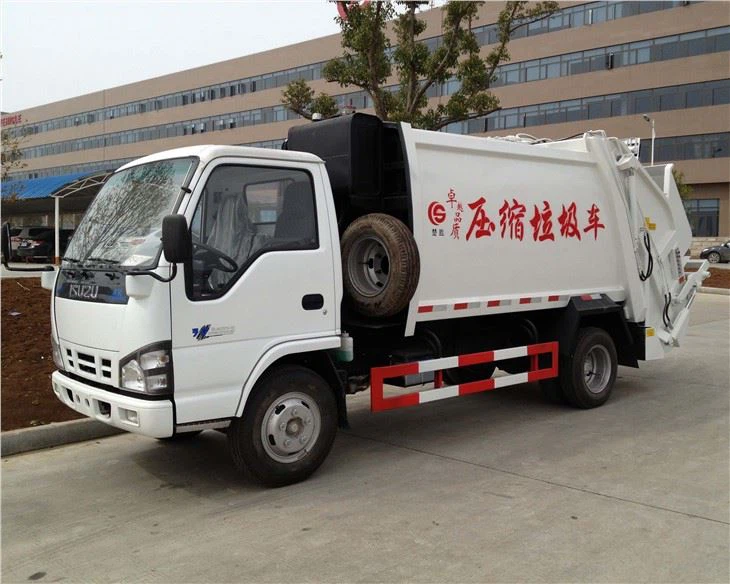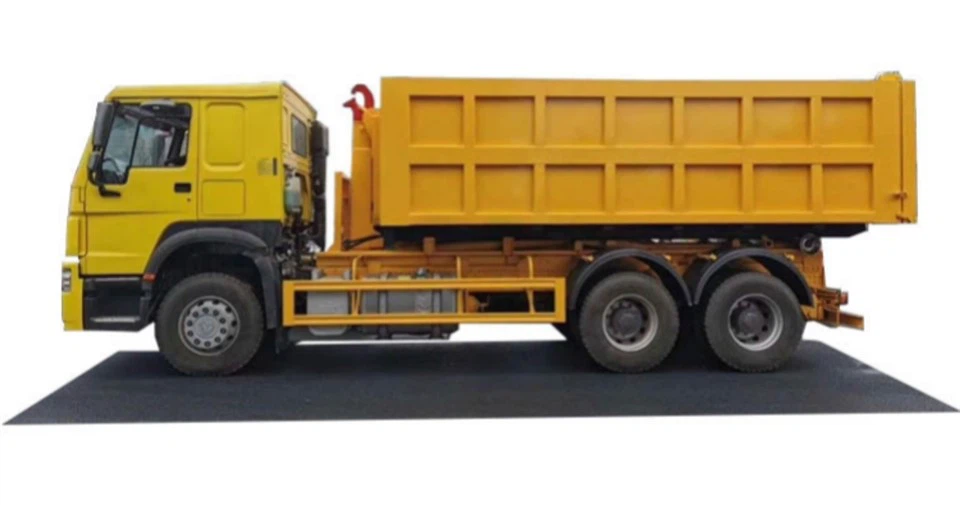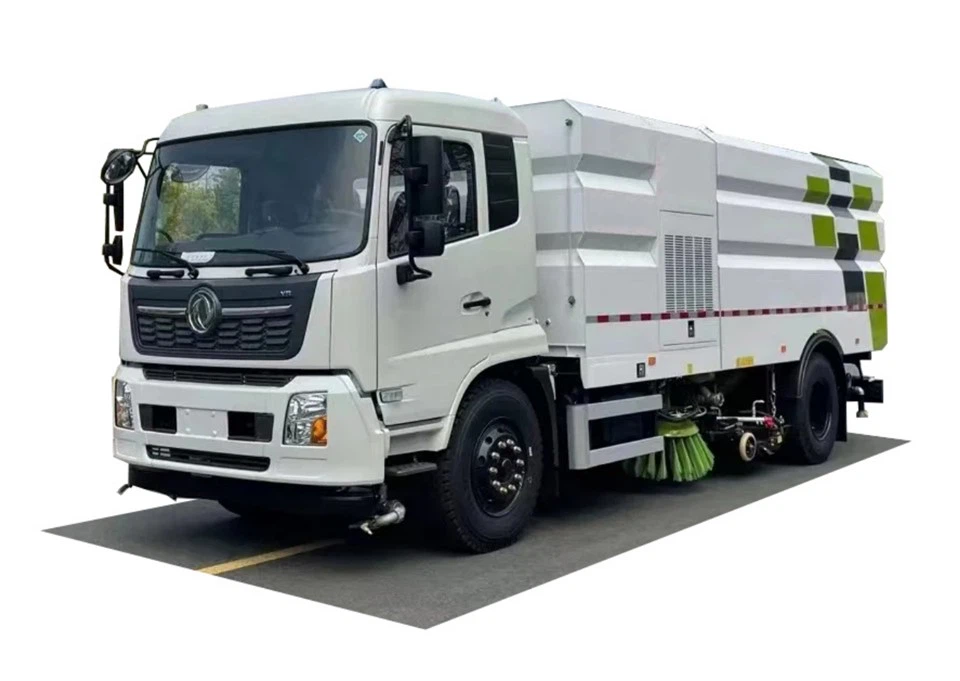Understanding Swaploader Hooklift: The Ultimate Guide

The Swaploader hooklift system is revolutionizing the waste management and transportation industries. This versatile and efficient solution allows users to interchange various containers quickly and easily. Whether you’re in construction, waste disposal, or recycling, understanding the Swaploader hooklift can enhance your operational efficiency significantly. This article will delve deeply into what a hooklift is, its advantages, how to choose the right system, installation tips, and common FAQs to guide you through its features and benefits.
What is a Hooklift?
A hooklift is a specialized truck-mounted system designed to transport and interchange various types of containers. It uses a hydraulic hooklift mechanism that allows the operator to easily pick up and drop off containers at different locations. This functionality offers numerous advantages, including increasing supply chain efficiency, reducing handling times, and optimizing transport costs.
The Swaploader Advantage
Swaploader has established itself as a leader in the hooklift industry. Its innovative designs focus on durability, ease of use, and reliability. The key advantages of using a Swaploader hooklift include:
1. Versatility
Swaploader hooklifts can handle various container sizes and types, including dumpsters, flatbeds, and specialized containers. This flexibility allows users to adapt to changing operational demands.
2. Durability
Designed for heavy-duty use, Swaploader products feature robust materials and construction, ensuring long-lasting performance even in demanding environments.
3. User-Friendly Operation
The intuitive design of Swaploader hooklifts simplifies operation, enabling even inexperienced operators to handle the system safely and efficiently.
4. Enhanced Safety Features
Safety is paramount in any operation, and Swaploader hooklifts come equipped with safety mechanisms that reduce the risk of accidents and malfunctions.
5. Increased Productivity
By reducing the time taken to swap containers, Swaploader hooklifts significantly enhance operational productivity, allowing businesses to serve more clients in less time.
Types of Swaploader Hooklifts
Swaploader offers various hooklift models tailored to specific needs. Here are some popular types:
1. Standard Hooklift
The standard hooklift can be mounted on various truck platforms and is suitable for general transportation of multiple container types.
2. Heavy-Duty Hooklift
Designed for heavier loads and rugged applications, the heavy-duty hooklift can handle larger containers and withstand harsh conditions.
3. Compact Hooklift
Ideal for urban settings and areas with limited space, the compact hooklift offers the same functionality in a smaller size.
4. Custom Hooklift Solutions
Swaploader also provides customized solutions to meet unique operational requirements, catering to specific industries and applications.
Choosing the Right Swaploader Hooklift
Selecting the appropriate hooklift system requires careful consideration of various factors. Here are key aspects to guide your decision:
1. Load Capacity
Assess the weight and size of the containers you plan to handle. Ensure the hooklift’s rated capacity matches your operational needs.
2. Vehicle Compatibility
Compatibility between your truck and the hooklift is crucial. Check the specifications to ensure proper mounting and operation.
3. Frequency of Use
If the hooklift will see heavy daily use, prioritize models designed for high durability and easy maintenance.
4. Specific Industry Needs
Consider any industry-specific requirements or challenges that may affect your choice, such as weather conditions or regulatory compliance.
Installing a Swaploader Hooklift
Proper installation is critical to ensure safety and operational effectiveness. While installing a hooklift is typically performed by professionals, understanding the general steps can be beneficial:
1. Preparation
Ensure the truck is in excellent condition and all required tools are available. Review the installation guide provided by Swaploader.
2. Mounting the Hooklift
Align the hooklift with the mounting points on the truck chassis. Secure the system using the appropriate bolts and connectors.
3. Hydraulic Connections
Connect hydraulic hoses according to the provided diagram to ensure proper functioning of the hooklift mechanism.

4. Testing
Perform a thorough testing of the hooklift system to check for proper operation before beginning regular use. Address any issues immediately.
Maintenance Tips for Swaploader Hooklifts
1. Routine Inspections
Regularly inspect for any signs of wear or damage, particularly to hydraulic lines, hoses, and connectors.
2. Lubrication
Keep all moving parts lubricated to prevent friction and wear. Follow the manufacturer’s guidelines for the best practices.
3. Cleanliness
Ensure that the hooklift and surrounding areas are kept clean to prevent debris from entering hydraulic systems.
4. Monitor Fluid Levels
Regularly check hydraulic fluid levels and replace them as recommended by Swaploader.
Case Studies: Swaploader Hooklift in Action
Understanding how businesses benefit from Swaploader hooklifts can provide valuable insights. Here are a few case studies highlighting their effectiveness:
1. Construction Industry
A construction company utilized a Swaploader heavy-duty hooklift to streamline material transport. By using different containers for different materials, they reduced loading times and increased project efficiency.
2. Municipal Waste Management
A city municipality adopted a compact Swaploader hooklift to manage waste collection in tight urban spaces. The ability to quickly swap out containers allowed them to maintain a cleaner city with better resource management.
3. Landscaping Services
A landscaping company used a standard hooklift to manage yard waste efficiently. With their ability to interchange containers, they significantly reduced downtime and improved service delivery during peak seasons.
Benefits of Using Swaploader Hooklifts
1. Cost Efficiency
By optimizing operations, businesses can reduce transportation costs and increase profit margins significantly.

2. Improved Customer Satisfaction
Faster service delivery often translates into higher customer satisfaction rates, leading to repeat business and strong referrals.
3. Environmental Benefits
Efficient waste management through timely container swaps can contribute to better recycling practices and lower landfill outputs.
FAQs About Swaploader Hooklifts
1. How much weight can a Swaploader hooklift carry?
Weight capacity varies by model, but most Swaploader hooklifts can handle loads ranging from 8,000 to 30,000 pounds.

2. Are Swaploader hooklifts easy to operate?
Yes, Swaploader systems are designed for user-friendly operation, requiring minimal training for new operators.
3. What types of containers can be used with hooklifts?
Swaploader hooklifts work with various containers, including roll-off dumpsters, flatbeds, and specialized boxes for different industries.
4. Can I customize my Swaploader hooklift?
Yes, Swaploader offers custom solutions tailored to meet specific business needs or industry requirements.
5. What maintenance does a hooklift require?
Regular inspections, lubrication of moving parts, hydraulic fluid checks, and cleaning are essential for maintaining hooklift functionality.
6. Can a Swaploader hooklift be installed on any truck?
Swaploader hooklifts are compatible with most truck chassis, but compatibility should be confirmed based on the specific model and truck type.
